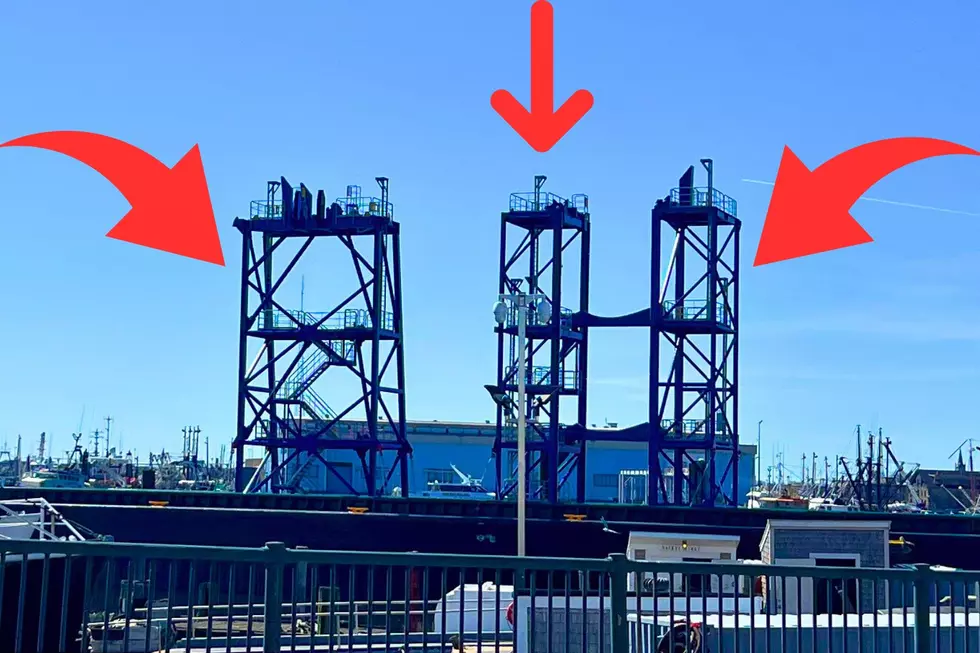![How We Can Fully Fund the New Bedford Fire Department [SOUTHCOAST VOICES]](https://townsquare.media/site/518/files/2019/11/DSC_0083.jpg?w=980&q=75)
How We Can Fully Fund the New Bedford Fire Department [SOUTHCOAST VOICES]
THIS GUEST OPINION PIECE BY:
Lisa White lives in New Bedford with her husband and daughter. Originally from the west coast, and brought east by her husband's military career, Lisa knew she'd found where she was meant to be when she first saw New Bedford.
Tensions are high in the city as New Bedford residents demand a solution to the decade-long funding shortage for New Bedford’s Fire Department. Two deaths in only a few months have the people of New Bedford wondering how many structure fires need to end in tragedy before the blacked-out stations become a priority to city administrators.
First employed by Mayor Lang, the station blackouts functioned originally to bridge a budgetary gap and continued, despite pushback from the firefighter’s union and first responders, because fully funding our local fire stations began to be seen as optional.
Two fatalities of elderly New Bedford residents in recent months have brought this important life-safety topic once again to the forefront. In order to actually achieve a victory on this topic, we may very well need to help out our current administration with a few creative solutions that make more sense than taking what many feel is an unnecessary risk with the safety of us all.
The blackouts save the city approximately $50,000 weekly, or $2.7 million annually. This piece is just my personal opinion regarding other budgetary cuts that could be made, rather than cutting our fire funding. The city of New Bedford has a population of around 95,000 people, I will make several mentions of other cities in this writing. All cities mentioned are within 15 percent of our population. All data and figures have been obtained from the financial databases maintained by the Commonwealth of Massachusetts and from the 2018-2020 fiscal budgets of individual cities mentioned.
New Bedford’s general government spending is leagues above most cities our size. In 2018, our general government spending topped $20 million, whereas the average for cities of similar size is only $12 million. Taking a closer look at our general government spending, it appears as though we have an overly robust payroll in the city, due to a larger workforce than similarly-sized cities. In fact, not including the zoo or departments relying on enterprise funding, we have 229 extraneous positions when compared directly to Fall River. Some of the more notable examples in workforce differences are the library department, where we employ 28, which is 10 more than Fall River. Others include he Treasurer’s department, which has eight more municipal workers; the assessor’s office, with six more positions; and finally, the facilities and fleet management department, that employs a whopping 76 full-time employees, compared to just 16 in Fall River. Every one of those employees also enjoys the benefits of health insurance, and if their tenure provides, pension as well.
Health insurance is a significant expenditure for all cities, and New Bedford is no exception. Our cost for medical insurance exceeds $40 million annually and climbs each year. Perhaps this could be another opportunity for savings. The majority of our municipal workers are married and if we were to offer a cash incentive for our workers to join their spouse’s medical insurance and be withdrawn from ours, that savings could be significant.
Another possible route to a fully-funded fire department may lie within the local tax exemptions. As of 2019, New Bedford has 25 percent of the assets in the city classified as exempt. These properties are owned by entities that have been given a tax exemption either by the organization’s designation, like a non-profit that receives a federal tax exemption, or by classification of land usage, like churches and schools. This means that each year, the city is unable to collect on the property taxes of just over 25 percent of the properties here, for a total of over $45 million in uncollectible property taxes.
However, the Commonwealth of Massachusetts outlines the procedures for classification and taxation, and requires cities to tax on a properties usage rather than its classification. There are a great many churches in New Bedford that occupy incredibly lucrative real estate that are no longer in operation as religious facilities. Some examples are St. Killian’s, St. Ann’s, John the Baptist, St. Casimir’s, Trinity Methodist and St. Therese’s. These churches that no longer operate as places of religious congregation could be added to the tax roll to increase the city’s levy and produce additional revenue.
Another solution could potentially be found by consolidating and reallocating expenditures and revenues between three separate, but overlapping, departments. The city has a strong and capable police force. Additionally, we also have a traffic commission and a parking authority. Many other cities have their parking and traffic responsibilities, either in full or in part, absorbed by their police force. The traffic commission and parking authority both have payroll expenditures of roughly $500,000 annually, for a total of $1 million a year.
Now, obviously, nobody should be pressured or expected to take on heightened responsibility without just compensation, but we may be in a unique and favorable position to negotiate such a shift, due to the recent requests of the police union to have the current chief of police removed. It’s possible that a deal could be struck between the city and the union to return the choice of the chief back to the force, as it was in the past, in exchange for the force accepting some or all of the responsibility of parking enforcement within the city. This could also help to strengthen community bonds with the force, by designating some officers in a primarily on-foot position for parking and meter enforcement and ticketing.
More opportunities to increase revenue lie in the tax that could be collected from marijuana sales, but offer a less-than-immediate funding solution, and have been intentionally left out due to uncertainty of market and timeline of such revenue being realized within the city.
Data and figures obtained from the Massachusetts Department of Revenue, division of local services.
Editor's Note: 'SouthCoast Voices' is a series of guest opinions from newsmakers and other people across the region, on relevant issues that directly impact the people of Greater New Bedford and the surrounding communities. The opinions are solely those of the author. If you are interested in contributing, please contact tim@wbsm.com for more information.

More From WBSM-AM/AM 1420









